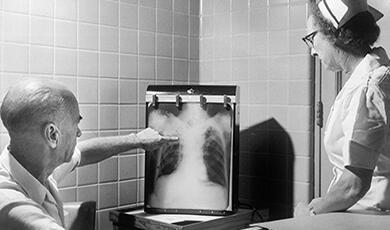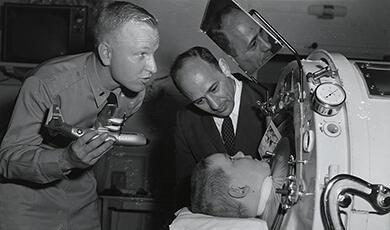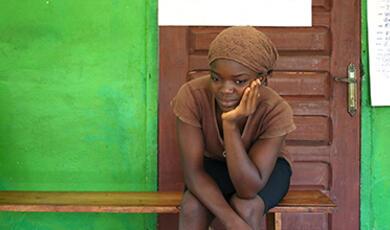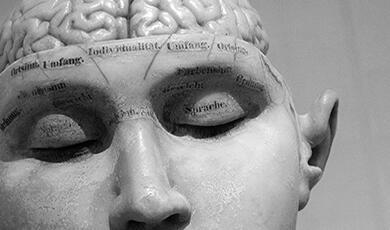Press release: Polio: A Cultural History

‘I am not polio!’ How cultural perceptions of ‘the crippler’ (polio) dehumanized millions of people
Embargo: 10 Nov 2022, 7pm
Gresham College is delighted to present Professor of Rhetoric, Joanna Bourke’s lecture: Polio: A Cultural History, which will take place on Thursday 10 November at 6pm.
In this second lecture of the series, Professor Bourke will chart public and scientific perceptions of polio over the last century; perceptions which have caused many sufferers to lose not only their physical independence but also their identity.
Professor Bourke will say: “Orthodox medicine for a long time prescribed absolute rest and immobilization. Splints or braces were used to immobilize limbs, others were place in iron lungs, sometimes for years.
“There was also extreme bitterness and anger expressed by polio survivors about being constantly reduced to their disease: as if their illness (or its effects) constituted their only identity.
“Being labelled ‘cripples’ stamped them as ‘deformed’, hideous even. As Jim Marugg exclaimed, ‘I am not polio! I am bigger than this thing that has happened to me!’.”
The seemingly triumphal experiences of a minority, such as Franklin D. Roosevelt, also added huge pressures to the majority of patients who were expected to behave in specific ways:
“Perhaps most galling was the mantra that cure, if not survival itself, depended on them ‘fighting’ the virus with every inch of strength they possessed.”
“Posters sported cheery and ‘brave’ children who, through sheer willpower and passive submission to doctors and nurses, would eventually be able to walk again.”
Professor Bourke will also highlight other categories of polio victim: from the poor and immigrant who were stigmatized, despite evidence suggesting the disease was more prevalent among the middle classes; to black sufferers who had less access to specialized treatment and recognition; to clinical trial participants sacrificed on the altar of scientific rivalry, treated as human guinea pigs who died due to rushed, ego-fuelled vaccination trials.
However, the lecture will also show how, through the rejection of the place allotted to them by society, polio sufferers have pioneered change:
Professor Bourke notes: “Polio survivors were important in the Disability and Patients’ Rights Movements, drawing inspiration from, and inspiring, LGBT activism, women’s liberation movements, and anti-nuclear campaigns
“They resisted the assumption by people in ‘normal-land’ for assuming that they possessed an identity entirely fixed according to their ‘impairment’.
“They wrote their own narratives.”
ENDS
Notes to Editors
This is the latest in our lecture series A Cultural History of Disease. You can register to watch the lecture online or request a press seat or embargoed transcript. If you would like to speak to Professor Bourke before the lecture, please contact Lucia Graves, Head of Communications (PR & Media) at l.graves@gresham.ac.uk or on 07799 738 439.
Read more about acclaimed cultural Historian Professor Joanna Bourke
About Gresham College
Gresham College has been providing free educational lectures – and now videos - at university level since 1597 when Sir Thomas Gresham founded the college to bring Renaissance Learning to Londoners. Our history includes some of the luminaries of the scientific revolution like Robert Hooke and Sir Christopher Wren, and connects us to the foundation of the Royal Society. Today we carry on Sir Thomas's vision. The College aims to stimulate intellectual curiosity and to champion academic rigour, professional expertise and freedom of expression.


 Login
Login





